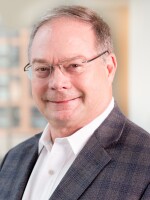One of the top targets for Republicans who want to take back the House in November's election is a first-term Democratic congressman from Orlando, Fla.
Rep. Alan Grayson represents a district that -- until his election -- had long been Republican.
Instead of keeping his head down and playing it safe, once he got to Congress, Grayson quickly made a name for himself as one of the House's most outspoken liberals -- and one not afraid to attack Republicans directly.
He showed that last year during the health care debate with a speech on the floor of Congress that quickly went viral. Grayson unveiled placards that he said contained the Republican health care plan. There were two main provisions, he said.
"Don't get sick," he said. And if you do, "die quickly."
Republicans demanded an apology. Grayson did apologize -- not to Republicans, but to the tens of thousands of Americans he says die each year because of inadequate health care.
Those and many other comments earned him the enmity of conservatives and Tea Party proponents. But they also made him a favorite with liberals and a regular on cable news shows.
Grayson says there's a simple reason he's become a Democratic hero: "I told the truth," he says. "Remarkably, that's an unusual thing in Washington, D.C., these days."
A Tough Election Year
Grayson's no stranger to a fight. He talks about how he grew up in public housing in the Bronx and then put himself through Harvard. As a lawyer, he made his reputation earlier this decade filing and winning lawsuits on behalf of whistle-blowers against defense contractors charged with fraud and corruption. He's one the wealthiest members of the House.
With his national base of support, Grayson has become one of the House's top Democratic fundraisers -- bringing in more than $4 million so far. He says people tell him, "You are saying the things that I have been thinking, but no one else is saying. And that's gotten us a national reputation."
Perhaps just as important, Grayson has a well-organized field operation. At a union hall in Orlando one recent Saturday, more than 50 campaign volunteers and staff stuffed envelopes, assembled yard signs and worked phone banks.
Volunteer coordinator Frank Hegedus says volunteers have been canvassing households five days a week since last October and have already covered every inch of the district.
Hegedus says the job is different now from when he started as a volunteer for Grayson in 2008. "Last election," he says, "it was mostly us telling people who Alan Grayson was. This election, everybody knows who Alan Grayson is -- and it's either they love him or they hate him."
This area around Orlando -- the heart of what's often referred to as the "I-4 corridor" -- is an important swing area. And it's changing, with a fast-growing Hispanic population. For the first time in years, registered Democrats now outnumber registered Republicans.
Even with the changing demographics -- for Grayson and for Democratic incumbents generally -- this is a tough election year. Discontent among conservatives and Tea Party insurgents combined with a lack of energy on the left leads some Democrats to worry about an "enthusiasm gap."
Attack Ads
And Grayson has another problem: opposition from some well-funded outside political groups. Americans for Prosperity, a conservative group founded by oil billionaire David Koch, is one of two organizations running ads against Grayson. It's attacking him for his support for the health care overhaul and the stimulus package.

In addition, the National Republican Congressional Committee is spending more than $800,000 on TV ads in Grayson's district. It's named the Republican nominee, longtime state legislator Dan Webster, as one of its "Young Guns."
"Well, I don't know how young I am," says Webster, 61, "but I think the Grayson seat is certainly something they believe could be a win. But also, it's something that's probably one of the higher priorities."
Webster is a conservative who, as a state lawmaker, served much of the area for 20 years. He's well-known for his religious convictions and anti-abortion stance. He was also one of the leaders of the attempt by the state Legislature to intervene in the Terri Schiavo case.
The ideological differences between him and Grayson couldn't be clearer. But Webster says that's not what this race is about.
"I think it's a referendum on Washington," he says. "Washington is broken, and there's not a whole lot of people that disagree with that."
Webster says the fault lies with Democrats in control of Congress. "They don't even read the bills," he says. "They don't get a chance to make up their own mind. They're just told what to do. I mean, Grayson has voted with Pelosi 98 percent of the time. And they're in this together."
Webster discounts the changing demographics of the district and predicts that his campaign and the well-honed Republican machine will beat Democrats in getting out the vote.
He acknowledges, though, that Grayson won't be a pushover. And Webster faces another challenge in Peg Dunmire -- a third-party candidate running on the Florida Tea Party ticket who's working to channel some of that anti-Washington anger into support for her campaign.
Copyright 2022 NPR. To see more, visit https://www.npr.org. 9(MDAzMjM2NDYzMDEyMzc1Njk5NjAxNzY3OQ001))







